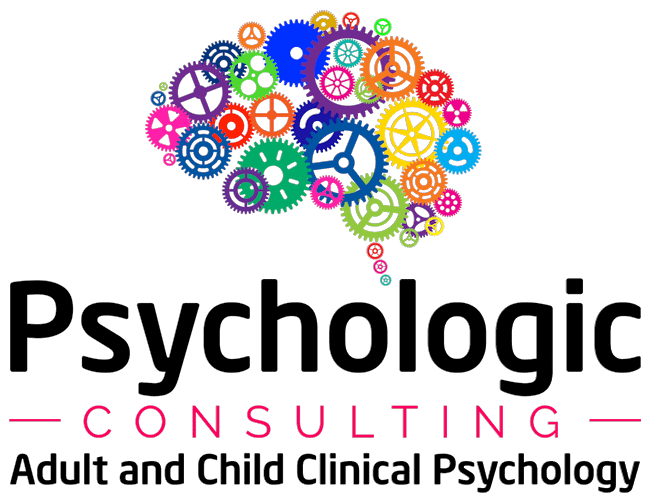Autism Spectrum Disorder/ASD Assessment using the ADOS-2 the gold standard testing tool for ASD.
What is autism spectrum disorder?
Autism Spectrum Disorder (ASD) is a lifelong developmental condition thought to affect around 1 in 100 children. ASD is diagnosed more frequently in boys, currently at a ratio of around 4:1. The exact causes of ASD are unclear; research strongly suggests there is a genetic basis to ASD, however environmental factors may also play a role in the onset and development of ASD symptoms in a genetically predisposed child.
The autism spectrum encompasses a wide range of symptoms, and no single symptom necessarily indicates that a child has autism. Generally speaking, a child with autism will display several behaviours from some of the following categories:
Social Development
- Limited use of eye contact
- Limited use of non-verbal communication (e.g., pointing, waving)
- Finds it difficult to understand facial expressions and gestures
- Difficulty forming and maintaining friendships
- Seems not to be interested in other children
Emotional Development
- Finds it difficult to understand, communicate, and regulate his/her emotions (e.g., frequent ‘meltdowns’)
- Finds it difficult to understand the thoughts, emotions, and needs of others
- Behavioural Development
- Unusual and/or restricted interests, or attachments to certain objects or toys
- Unusual body movements, such as flapping hands or spinning
- Finds it very difficult to cope with change
Sensory Profile
- Sensitive to sound or touch, may be easily overwhelmed
- Unusual sensory interests (e.g., textures, moving objects)
- High tolerance for pain and/or temperature
Language Development
- Not responding as expected to his/her name by 12 months of age
- Not using simple non-verbal gestures by 12 months of age (e.g., pointing or waving)
- Not speaking at all by 18 months of age
- Not using spontaneous phrases by two years of age
- Unusual patterns of speech (e.g., tends to echo the speech of others, repetitive)
- Loss of language
- Appears not to hear others speaking to him/her
Why Assess for ASD?
Parents are typically the first to notice that their child is showing unusual behaviours. Autism spectrum disorders can be diagnosed early on from when a child is a toddler as well as later in life, often on the back of learning difficulties, social challenges or emotional difficulties or parents can often be diagnosed after their child has received a diagnosis.
Most parents/people find that the assessment and diagnosis of autism spectrum disorder is helpful in the following ways:
- Understanding your child/yourself: A diagnosis of autism can be the first step for parents in understanding why their child is not achieving developmental milestones or is displaying unusual interests or behaviours. As an adult it can also be helpful to understand your personal strengths and weaknesses.
- Support: The earlier a child is accurately diagnosed with ASD and starts effective intervention, the better the developmental outcomes for the child. The recommendations arising from the assessment process can help parents, teachers and other treating professionals to develop individualised behaviour management and learning support plans, to ensure that a child’s specific needs are being met at home and school. As an adult a diagnosis can also allow access to various support services (i.e., disability pension, employment support).
- Accessing Services: Once a child/person is diagnosed with autism, financial and community support may be available (i.e., Medicare, Centrelink, or the National Disability Insurance Scheme). As a clinical psychologist the report I write to confirm diagnosis of ASD can also be used to apply for the National Disability Insurance Scheme (NDIS), to assist your child at school with receiving additional funding and for parents/carers to receive carer payments from Centrelink.
What is the ADOS-2 testing tool?
The Autism Diagnostic Observation Schedule- Second Edition (ADOS – 2). This has been rated as the most reliable diagnostic tool currently recognised by International ASD experts. It is a semi structured, standardized assessment of communication, social interaction, play, and restricted and repetitive behaviours. By observing and coding these behaviours, you can obtain information that informs diagnosis, intervention, treatment planning, and educational placement. The revision improves an instrument already viewed as the “gold standard” for observational assessment of autism spectrum disorders (ASD). With updated protocols, revised algorithms, a new Comparison Score, and a Toddler Module, the ADOS-2 provides a highly accurate picture of current symptoms, unaffected by language. It can be used to evaluate almost anyone suspected of having ASD—from 1-year-olds with no speech to adults who are verbally fluent.
The process of Assessment for ASD
An ASD assessment involves comprehensive information collection from multiple steps of information gathering including an interview with both parents and teachers, clinical questionnaires, interviews and observation with the child themselves at school and with their peers (without the child being aware of the observation) and completion of the ADOS- 2.
This information enables me to determine if a child’s behaviour, emotional expression and social skills are within age-appropriate limits, or whether their areas of strength and difficulty are consistent with an ASD profile.
The Autism Diagnostic Assessments process includes the following:
Step 1
Step 2
Step 3
Step 4
Step 5
Step 6
If your child is diagnosed, what happens next?
Following an ASD diagnosis by myself your child may be eligible for government funding for therapies and resources to support families. Please note only reports written by clinical psychologists are accepted directly by NDIS.
What is the cost involved with an assessment for autism spectrum disorder?
Please call or email me to find out more about the costs involved with an Autism Diagnostic Assessment or to book an initial appointment. Rebates are available from Medicare with a referral. Private health rebates are also available.
